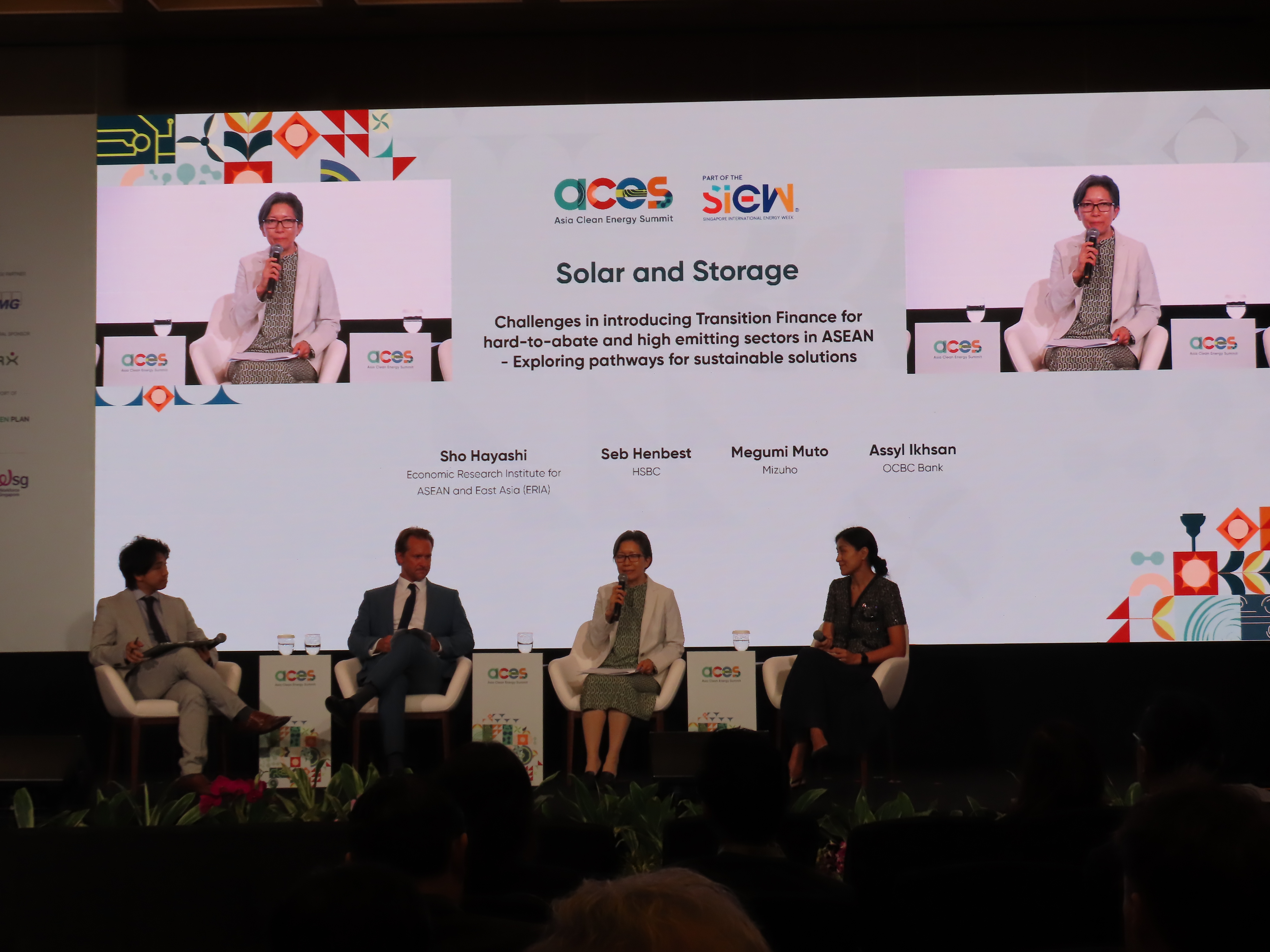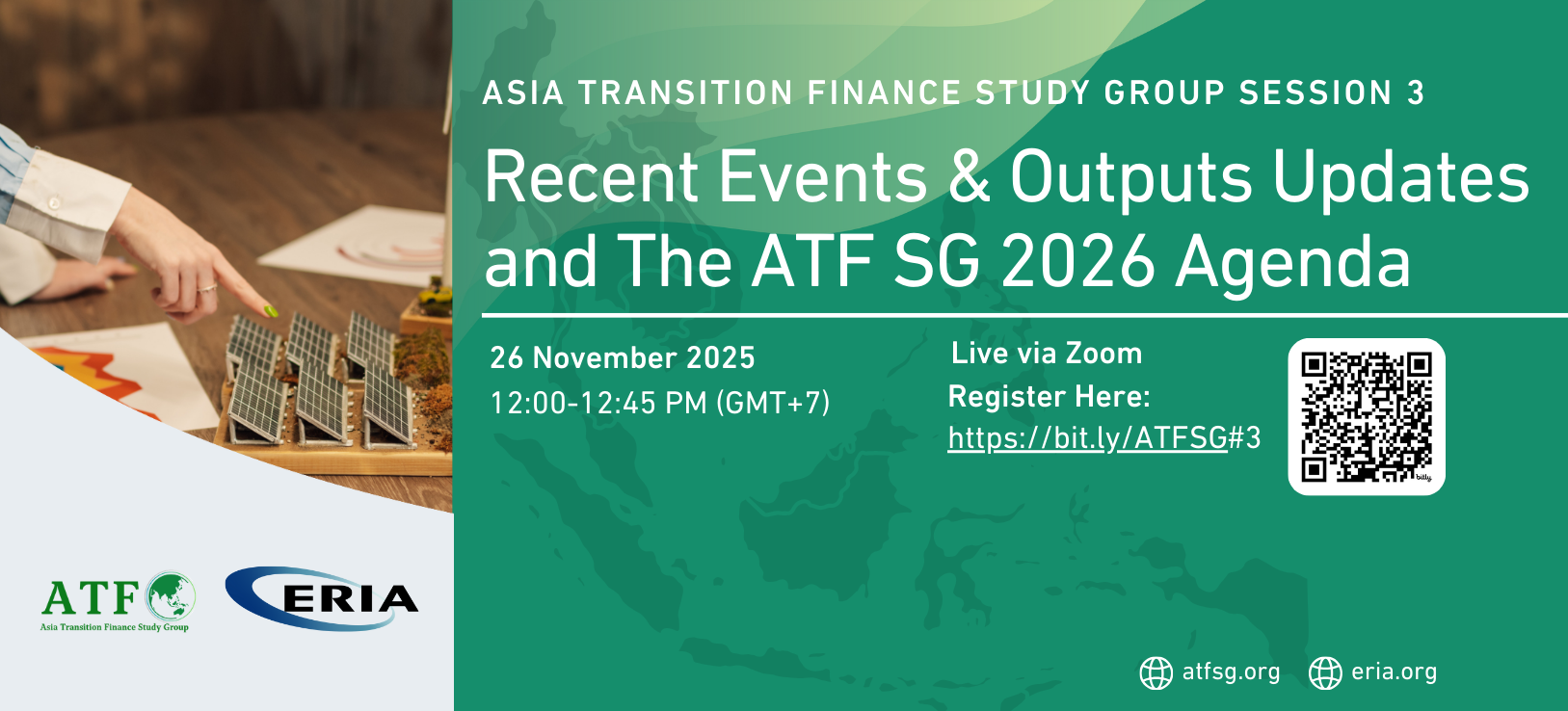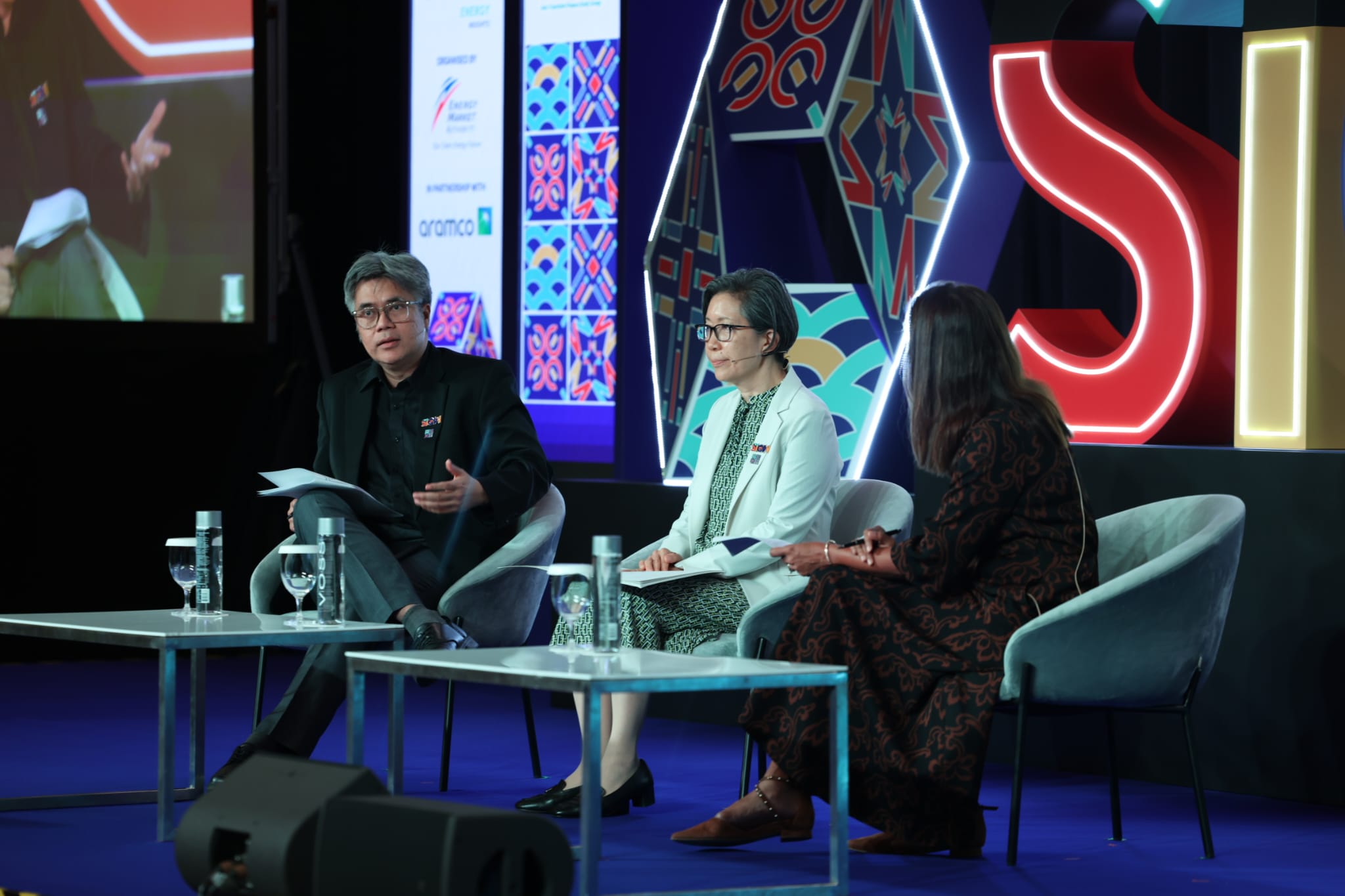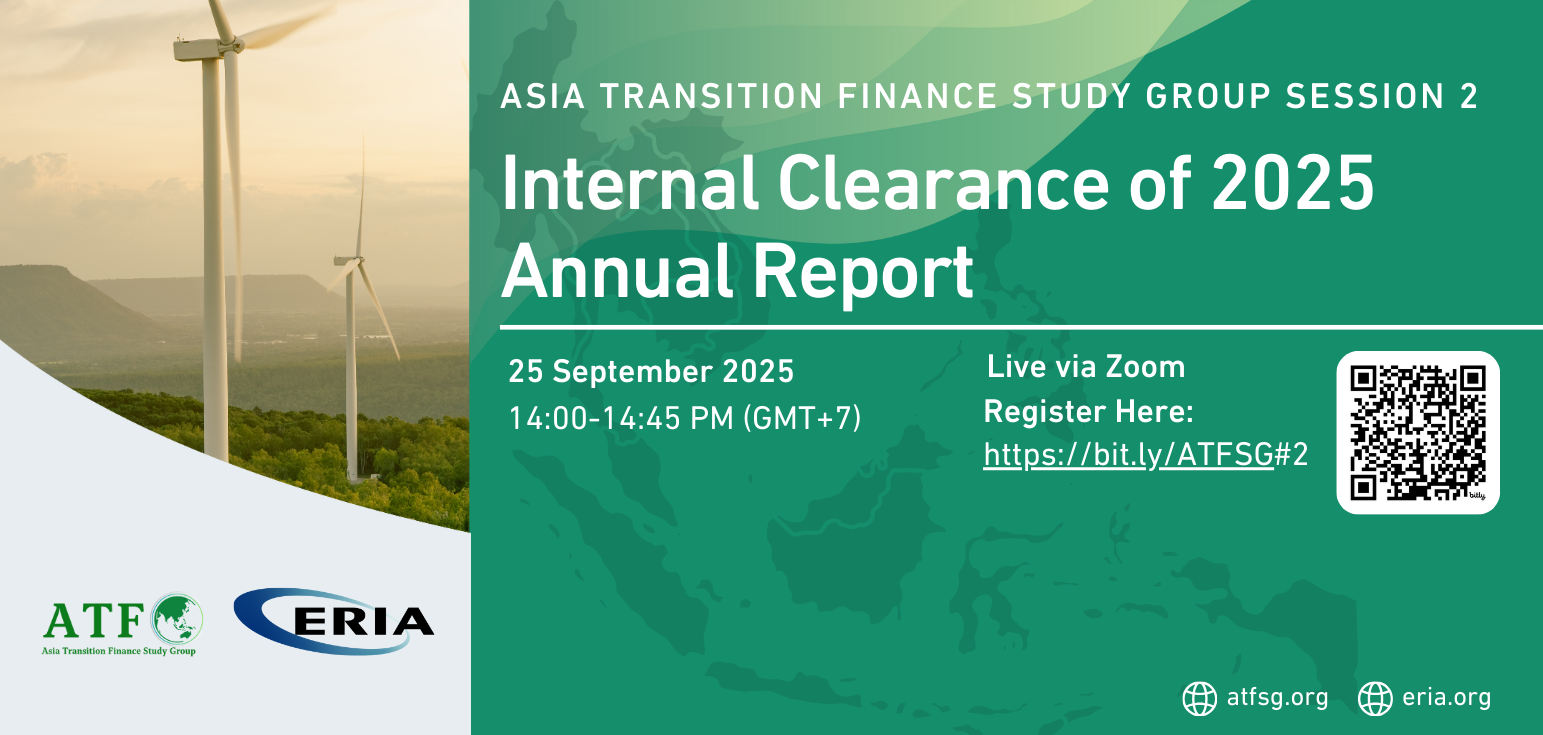From Frameworks to Finance: Turning ASEAN’s Transition Pathways into Bankable Projects
30 October 2025
Singapore, 29 October 2025 — The Asia Transition Finance Study Group (ATFSG) shared key insights on mobilizing capital for energy transition projects at the Asia Clean Energy Summit (ACES), held on 29 October as part of Singapore International Energy Week (SIEW). Supported by its secretariat, ERIA, ATFSG participated in the session featuring opening remarks from Japan’s Ministry of Economy, Trade and Industry (METI), followed by presentations from the International Energy Agency (IEA) on their report ‘Scaling Up Transition Finance’ and from ADB–ERIA–METI on their joint report ‘Decarbonising Southeast Asia’s Hard-to-Abate and High-Emitting Sectors: Transition Finance, Technologies, and Policy Approaches’. The session concluded with a panel discussion on Transition Finance in ASEAN featuring members of ATFSG.
Sho Hayashi, Policy Fellow on Energy Transition and Finance at ERIA, delivered the presentation on the joint report, and highlighted the importance of supporting all three key investment themes—renewables, enabling infrastructure, and hard-to-abate sectors—and calls for stronger collaboration among policymakers, industry, and financial institutions to accelerate Asia’s transition.
The panel discussion brought together leading experts from the financial sector to exchange views on how to scale up investment for hard-to-abate and high-emitting sectors in the region. The session was moderated by Sho Hayashi from ERIA, and featured Assyl Ikhsan, Executive Director for Sustainability Solutions at OCBC Bank, Seb Henbest, Global Head of Climate Transition at HSBC, and Megumi Muto, Deputy Chief Sustainability Officer at Mizuho Financial Group. The panel explored how financial institutions can balance decarbonisation and economic growth by mobilising capital toward credible transition projects. Speakers discussed the importance of clear policy and regulatory frameworks, predictable revenue structures, and effective risk-sharing mechanisms such as blended finance. They also highlighted the need for greater public–private collaboration to accelerate investment in hard-to-abate industries, including power generation, steel, and cement.
Throughout the discussion, participants shared a view that transition finance is an essential tool for Asia’s pragmatic energy transition, allowing countries to pursue diverse pathways toward sustainability. In closing, the moderator emphasised that the next step is to move from concept to implementation, translating transition finance frameworks into bankable and region-specific solutions that reflect the realities of ASEAN economies.


